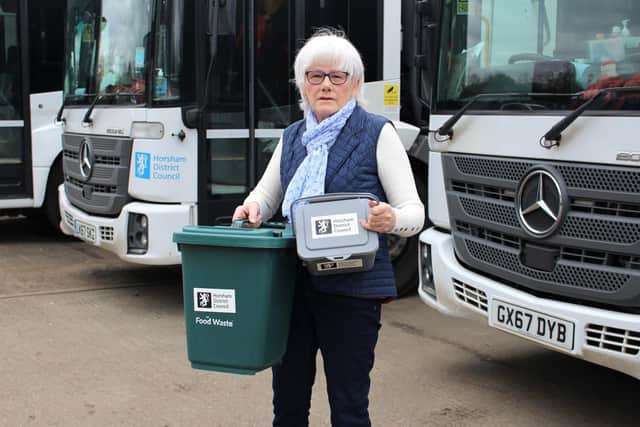Horsham residents urged to 'think before they buy' during Food Waste Action Week
and live on Freeview channel 276
The Waste and Resources Action Programme provided this national estimate based on weight.


Advertisement
Hide AdAdvertisement
Hide AdRecent food waste composition analysis carried out for the Horsham District Council has confirmed the national figure of 40% to be true for the local region.
Horsham District Council is supporting national Food Waste Action Week, which takes place this week.
Cllr Toni Bradnum, Horsham District Council cabinet member for Recycling and Waste said: “Who would have thought that here in the UK we would be holding a Food Waste Action Week? Yet here we are, highlighting the enormous volume of food thrown away each week because we buy too much, cook too much, or in some cases, don’t cook it at all and it ends up in the bin."
Around a third of the food produced globally is lost or wasted and it’s having a real impact on climate change, contributing 8–10% of total man-made greenhouse gas (GHG) emissions.
Advertisement
Hide AdAdvertisement
Hide AdThe aim of Food Waste Action Week is to create lasting change that helps to deliver the UN Sustainable Development Goal of halving global food waste by 2030.
Cllr Bradnum continued: “The Government is legislating to introduce nationwide food waste collection services. Studies have shown where food waste is collected on a weekly basis, the weight of wasted food per household has reduced by 15%, which is good news.
“We are all tempted by the quality and array of wonderful foods on offer in the shops and supermarkets, and it’s difficult to stop and think about the quantity we’re buying and the true cost. The cost of production, the transportation, the packaging, not to mention the escalating costs of food and the energy to cook it, the list goes on. Perhaps it’s time for a ‘think before you buy’ week.”
READ MORE: